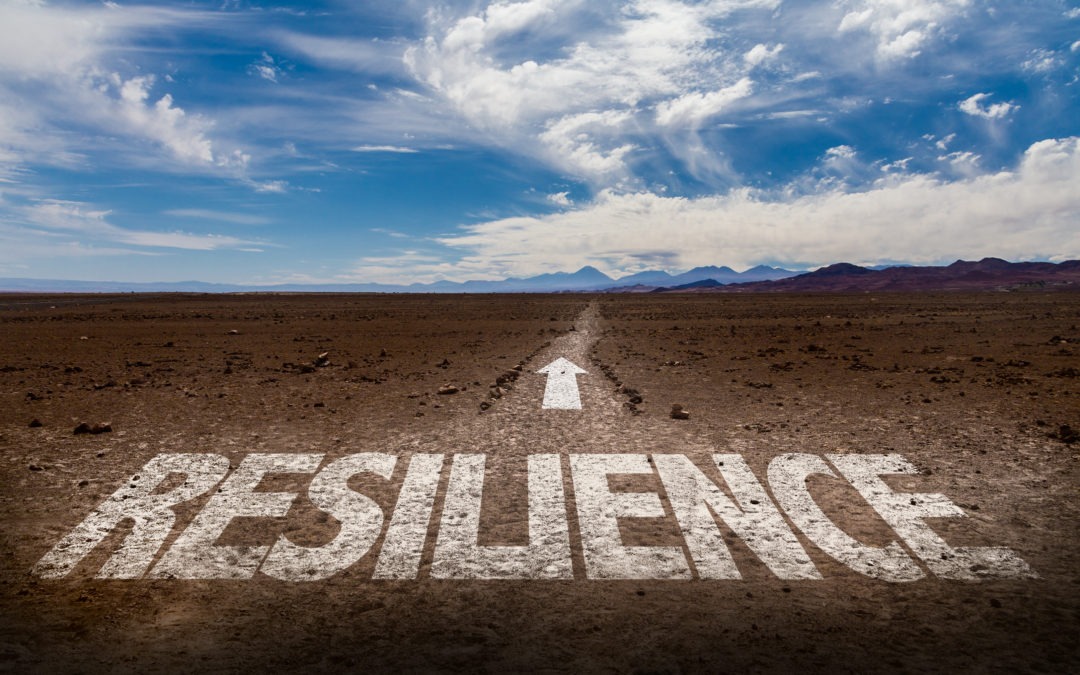What habits are you hardwiring these days? The thoughts and activities we focus on and repeat, become hardwired in our brain over time. Choose your focus carefully.
Resilience, as it turns out, is something learned that can also become hardwired; it’s a skill to develop through practice. And unfortunately, resilience is built as a result of hardship and having to adapt and move through it – a common experience for everyone during the global pandemic.
What’s your resiliency style? How well do you recover from setbacks? There is a spectrum of human tendencies, from quickly bouncing back from setbacks and moving on, to the other extreme where we are immobilized by adversity and very slow, if ever, to recover.
How we react to difficult experiences in the short term, is partly automatic. The chemistry in our body and brain changes in response to negative emotions and sudden shocks or change. We feel the flood of a chemical stress response when we receive bad news, watch a sad movie or have an argument with a spouse, but (for most of us) that chemistry doesn’t last. This is true for positive experiences also. Positive emotions may infuse and uplift the rest of our week when we watch a child achieve an important milestone, we receive positive recognition, or listen to our favourite music. Eventually, we go back to normal. Our brain’s fight or flight response is designed for short-term survival. That is useful for avoiding a potential accident. It’s not so useful for months of isolation and disruption during a global pandemic. So how can we foster resilience as we move through life?
Research shows there are several ways we can stay resilient even during prolonged hardship.
1: Normalize & Adapt
Understand and acknowledge your own response to the event/crisis. Neuroscience has shown that using language to name the emotions we are feeling, will dial down our brain’s threat response, freeing up our capacity to think clearly. * Also, as survivors of extreme disasters and accidents have demonstrated, it is those who quickly adapt to, and accept the new circumstances, who have the best chances of survival. **
2: Collaborate
We are wired to collaborate in small groups in order to survive, after thousands of years of evolution. Social cognitive neuroscience has discovered five social needs and mindset that create the optimum experiences for any group to be high performing – at work, at home and in the extraordinary situations we find ourselves in through the course of life. We now refer to this optimum experience of human interaction as psychological safety.
3: Thrive
Research suggests only around 30% of longevity is attributed to genetics. The rest is predominantly due to optimism and resiliency. And some may argue a small dose of luck! So if you want to live a long life, a good diet, regular exercise and social integration are seen as consistent traits of those who live beyond 100. These traits or regular activities are:
- Regular (not extreme) exercise
- Know and live your purpose
- Prioritize downtime and rest
- Have a largely plant-based diet
- Enjoy social time with friends
- Have some kind of faith
- Prioritize and participate in family and community
* Lieberman, M. et. al, ‘Putting Feelings into Words’, Psychological Science, 2007, Vol.18 -No.5.
** Gonzales, L. ‘Deep Survival: Who Lives, Who Dies’


We’ve really focused on collaboration & connection here at Atos during the pandemic so that our people continue to feel that they belong with us.